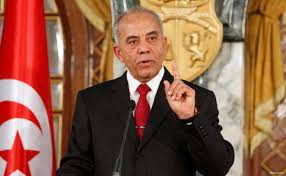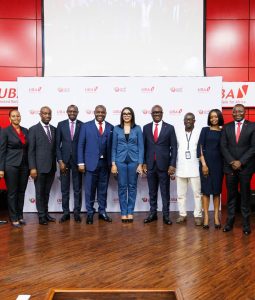
Bloomberg reports that Tunisia’s president said he suspended parliament and fired the prime minister to restore order and retake the country from “thieves,” dismissing claims he orchestrated a coup in the Arab Spring’s birthplace.
Kais Saied’s comments — a staunch defense of his moves a day earlier — came as he ordered a 7 p.m. to 6 a.m. curfew through Aug. 27 and barred public gatherings for more than three people. The combined steps have rattled the nation’s already brittle democracy and thrust it into what may be its worst constitutional crisis since the 2011 uprising ousted President Zine El Abidine Ben Ali.
Explaining his reasoning, Saied said Tunisia had shifted from single-party rule to one-lobby governance, accusing coalition parties of dividing the spoils. He dubbed them “thieves” and said he acted after his “patience had run out.”
“I am baffled by those who speak of a coup. I studied and taught the law and I know what a coup means — violating legitimacy,” he said in a Monday meeting with Tunisian representatives, a video of which was posted on his Facebook page. “I applied the constitution since conditions” for taking the decisions “were met,” he said.
Saied took action late Sunday after masses of mainly young people demonstrated in the capital, Tunis, and other cities calling for the fall of the government and railing against hardships caused by the coronavirus pandemic. The new movement restrictions, for which no official reason was given, will likely be taken as an attempt to quell any potential unrest from those opposed to his steps, including supporters of the moderate Islamist Ennahda Party, the biggest bloc in parliament.
High Stakes
The stakes are huge for Tunisia, a rare Arab democracy whose 2011 uprising unseated the country’s long-serving president and sparked unprecedented upheaval in the Middle East. Politics have been bitterly contested in the country ever since, and the current tensions hint at broader regional shifts at play. Since coming to power in 2019, Saied has forged stronger ties with Egypt and the United Arab Emirates, states with zero tolerance for Islamists.
In measured remarks, Saied on Monday accused politicians of “stealing billions off the sweat of the Tunisian people.”
“I reassure Tunisians that the state is still standing, and there will be no room for violating rights and freedoms or equality,” he said. “I also urge them not to take to the streets. The most serious threat confronting states and societies is an implosion or internal fighting.”
The call for calm was echoed by the international community, including by key regional actors, the United Nations, and the Arab League. U.S. officials expressed concern about the situation, while saying there’s been no determination whether the situation is a “coup.”
“We are in touch at a senior level from both the White House and the State Department with Tunisian leaders to learn more about the situation, urge calm and support Tunisian efforts to move forward in line with democratic principles,” White House Press Secretary Jen Psaki told reporters Monday.
U.S. Secretary of State Antony Blinken “urged President Saied to maintain open dialogue with all political actors and the Tunisian people,” according to a statement Monday from spokesman Ned Price.
The president’s power play comes at a critical time as Tunisia tries to secure new backing from the International Monetary Fund. Tunisia’s economy contracted by 3% in the first quarter of 2021, and a record 8.6% in 2020, according to the central bank.
IMF Stands Ready
The IMF said Monday it was “closely monitoring” the situation and stands “ready to continue to support Tunisia and its people to cope with the impact of Covid crisis, achieve an inclusive job-rich recovery and restore sustainable finances.”
Tunisia “continues to face extraordinary socio-economic pressures, including as a result of the Covid-19 pandemic, which is causing tragic loss of life, and Tunisians’ unmet aspirations for higher, job-rich, and inclusive growth,” an IMF spokesperson said in a statement to Bloomberg.
Fitch Ratings said earlier the fresh turmoil could delay an IMF deal, while the president is “unlikely” to use his authority to enact measures to cut the public wage bill as such steps “would be unpopular and could coalesce social pressure against him”
Saied lifted immunity for lawmakers and has vowed to soon replace Hichem Mechichi, the prime minister he fired Sunday after only grudgingly appointing last year. Mechichi said in a statement Monday evening that he accepted Saied’s decision and stood “on the side of the people.”
Ennahda sounded the alarm over Sunday’s developments, which mirrored events that preceded the 2013 crushing of the Muslim Brotherhood’s brief dalliance with elected power in Egypt.
In a video posted on the party’s official page, Rashid Ghannouchi, Ennahda’s leader and the speaker of parliament said the nation was “facing a coup attempt in the name of the constitution




Профессиональный сервисный центр по ремонту бытовой техники с выездом на дом.
Мы предлагаем:сервис центры бытовой техники москва
Наши мастера оперативно устранят неисправности вашего устройства в сервисе или с выездом на дом!
Профессиональный сервисный центр по ремонту техники в Самаре.
Мы предлагаем: Сколько стоит ремонт ПНВ
Наши мастера оперативно устранят неисправности вашего устройства в сервисе или с выездом на дом!
Предлагаем услуги профессиональных инженеров офицальной мастерской.
Еслли вы искали ремонт холодильников gorenje цены, можете посмотреть на сайте: ремонт холодильников gorenje сервис
Наши мастера оперативно устранят неисправности вашего устройства в сервисе или с выездом на дом!
Знаю отличный многофункциональный ресурс для людей, которые ценят своё время!
Особенно полезна сатья: Мерчандайзинг персонажей – коммерческий успех культурных икон
Здесь есть всё: от познавательных статей до практических калькуляторов и доски объявлений. Один сайт заменяет множество других!
Профессиональный сервисный центр по ремонту техники.
Мы предлагаем: Ремонт кондиционеров Leberg во Владимире
Наши мастера оперативно устранят неисправности вашего устройства в сервисе или с выездом на дом!
Прелагаю посетить популярный сайт, на котором можно найти информацию на все случаи жизни.
Много полезных и интересных статей в категории: Спорт
Подписывайтесь и получайте постоянные обновления. Пользуйтесь сервисами, делитесь информацией, находите дрeзей!